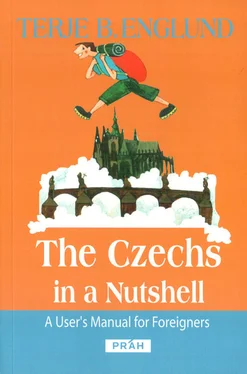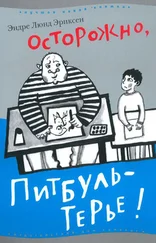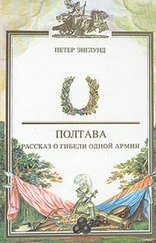Sure, most Czechs are proud of countrymen who have made the American National Ice HockeyLeague look more or less like a competition between Czech clubs. When a foreignermentions film director Miloš Forman, a Czech will almost certainly remind you that this respected artist was actually born in Czechoslovakia, and of course it’s not insignificant that people like Chicago’s mayor Antonin Cermak or Brazil’s president Juscelino Kubitschek were of Czech origin.
But what about the thousands of ordinary Czechs (according to some estimates approximately half a million people) who chose to leave the country instead of putting up with the Bolshevik regime? What were the real reasons for their decision to emigrate? Are the emigrants better than us, since they didn’t collaborate with the communists? Do they now have any moral right to criticize developments after 1989? And, most importantly, are these people still Czechs?
It’s easy to understand the feelings of both sides. Take the average emigrant, who had to build up a new existence practically from scratch. Most of them have been amazingly successful. In Sweden, for instance, several surveys show that the approximately 20,000 Czech immigrants, from an economic point of view, belong to the most successful of all ethnic groups represented in the country — including the Swedes themselves. The think-tank in Stockholm that conducted one of the surveys concluded that those who chose to emigrate represented the most active, ambitious and well-educated layer of the Czech population.
When these industrious people started to return to the old country after 1989, either as touristsor on a permanent basis, they were often disappointed with what they found: a country mired in bureaucracyand corruption, politicianswasting their time and energy in petty quarrels, and people still more prone to complain passively about all their problems (see: Hospoda) than to do something to solve them. Some emigrants even found that the houses they once owned were now inhabited by former communist big-shots, who were allowed to buy the properties for a song.
Nevertheless, when emigrants have dared to criticize — no matter how legitimately — the country’s state of affairs, they usually arouse wild and negative reactions. “It’s easy for you to fault us for being backward and incompetent,” the saying goes, “when you for the past twenty years have enjoyed all the advantages of a modern Western society!”
There might be something to this reaction. Under the rigid normalization of the 1970s and 1980s, emigration was a tempting option. But many ambitious and competent people, however fed up with the communists, resisted it for entirely unselfish reasons. Some could not bear the thought of leaving old and feeble relatives behind. Others felt so devoted to the Czech national identityand the country’s long-lasting struggle for cultural emancipation that they never wanted their children to grow up in a foreign country. And to many members of the political opposition (see: Charter 77), resisting the pressure to emigrate was a matter of principle: what makes the Bolsheviksbelieve they have more right to live in this country than I have?
In addition, the Czechs’ obsession with egalitarianism(some people would probably prefer the term envy here) also plays a certain role. Most of the emigrants, who have returned to the old country, are economically far better off than those who stayed. Being wealthy and smart — and moreover eager to demonstrate it — has never been a good way of making friends in this country.
The Czechs’ somewhat cold relations towards emigrants can also be explained in a more scientific way. The social anthropologist Ladislav Holý, himself a Czech who settled in Great Britain in the 1970s, claims that his former countrymen perceive emigration in a different way than is common in the West.
In the ideology of Western liberalism, Holý maintains, emigration is considered a personal matter, which is of no interest to the rest of the society. In a cultural ideology, as in Czech society, which, on the contrary, underlines collectivism, emigration is seen as a moral problem. One of the key concepts in Czech national identity is, according to the social anthropologist, the birth and the re-birth of the nation. In other words, the term “mother country” is to be interpreted literally; i.e., as a mother. Thus, those who leave their country for a longer period have in practice renounced their nationality forever.
Ladislav Holý’s views on emigration in a Czech cultural context were undoubtedly coloured by his own experiences with former colleagues, who did not exactly greet “the British smartass” with open arms when he returned to Czechoslovakia shortly after the Velvet Revolution. Today, however, his views on emigration may sound a bit categorical. During the last decade, emigrants have gradually lost their diabolical reputation, and emigration as such has been treated less and less as a touchy issue.
As a result, it stirred only minor commotion when two returned emigrants (both of them with double citizenships) took places in the government that was appointed in 1998. Another important milestone was reached three years later, when some 80,000 Czech citizens living outside the country’s borders got the right to participate in elections. It’s a less important fact that just a minority of them actually used their formal rights to vote.
Ask any modern, educated Czech woman whether she thinks it’s acceptable for a man in the same professional position to earn 15-20 percent more than her. Then ask if she shares the view that women don’t belong in the Parliament or in the management of big companies. Or if she believes that a young woman’s natural career is that of a mother and housewife. Most likely, she will answer “no” to all three questions. But if you then, logically, conclude, “So you are a feminist”, consider yourself lucky if she only smashes your face.
Why? To the great majority of Czech women, the word “feminism” is automatically associated with an ugly, militant, man-hating creature with unshaved legs, greasy hair and a nasty personality; in short, a hag who will never ever get a husband, which she doesn’t want anyway, because in this country it’s commonly known that all feminists are, in reality, lesbians.
One obvious reason for this somewhat eccentric attitude is to be found in the recent era of communism. To the Bolsheviks, women’s liberation and feminism — in its Marxist interpretation — were important political topics. True, the Czech communists didn’t go so far as their Russiancomrades, who took great pride in putting women at building railroads or drivingcranes and heavy machinery, but also their method of “liberating” women from the capitalist order was based on forcing them to work. As a result, in no other country on the planet, except in the former German“Democratic” Republic, did women represent a larger part of the working force than in communist Czechoslovakia.
This, however, definitely did not mean that women were treated as equals with men. On the contrary, the propaganda spoke loudly about equal opportunities for both genders, but women were in fact systematically discriminated against, both in terms of wages and career opportunities. When it came to higher education, the communists even revealed themselves as far more conservative than most capitalists: as late as in the 1980s, young men were almost automatically preferred in natural sciences, whereas their female counterparts ended up studying humanities.
The political dimension of the communists’ mock fight for “equal rights” made it even more inedible. To show how progressive the regime was, many political organs had quotas that fixed an obligatory number of female members. Of course, in most cases these women were only assigned to walk-on roles as political alibis, but thanks to female comrades such as the infamous Marie Kabrhelová, a red version of Margaret Thatcher who preached the Party’s equal-rights gospel with downright religious intensity, feminism’s credibility was ruined for generations.
Читать дальше








![Theresa Cheung - The Dream Dictionary from A to Z [Revised edition] - The Ultimate A–Z to Interpret the Secrets of Your Dreams](/books/692092/theresa-cheung-the-dream-dictionary-from-a-to-z-r-thumb.webp)



